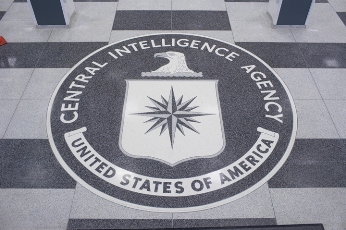Sudan served as a hub for receiving Al-Qaeda suspects nabbed by CIA: report
February 5, 2013 (WASHINGTON) – The CIA transferred five individuals suspected of having links to Al-Qaeda from Malawi to Sudan in 2003, according to a report released on Tuesday.

The help included permitting the CIA to run secret interrogation prisons on their soil, as well as allowing the agency to use their airports for refuelling while moving prisoners around the world.
Fahad al Bahli (Saudi Arabia), Arif Ulusam and Ibrahim Habaci (Turkey), Khalifa Abdi Hassan (Kenya) and Mahmud Sardar Issa (Sudan) were taken into custody in Malawi in a joint operation involving the CIA and Malawi’s National Intelligence Bureau.
Two days later they were secretly flown to Zimbabwe where they were held for almost a month.
The five men were later flown to Sudan where they were released after it was established that there was no evidence linking them to Al-Qaeda, the 211-page report said.
It is not clear where and for how long they were held in Sudan and whether Sudan’s National Intelligence and Security Services (NISS) was involved in their interrogation.
OSJI referenced a 2006 report by Amnesty International (AI) which mentioned that flights N313P-N4476S, associated with CIA extraordinary rendition operations stopped over twice in Dubrovnik airport in Croatia, including one coming from Sudan.
Dubrovnik airport manager Tonci Peovic confirmed to AI in April 2006 that “the airport’s log book contains entries on a plane with registration number N4476S from Khartoum in Sudan landing in Dubrovnik on 23 April 2005 and leaving for the United States on 25 April 2005”.
In 2010, a German newspaper claimed that the US had secret prisons in more than 66 nations – including Sudan – used to house terror suspects. This was vehemently denied by Khartoum at the time.
The intelligence cooperation between the US and Sudan was publicly exposed in 2005 when the Los Angeles Times disclosed that the CIA sent a jet in April 2005 to Khartoum to ferry former NISS chief Salah Gosh into Washington for meetings.
The same newspaper revealed in 2007 that Sudan has secretly worked with the CIA to spy on the insurgency in Iraq despite the strained relations with Washington over the Darfur crisis.
In the same year, Gosh was quoted as saying in an interview that cooperation with the CIA “helped avert devastating measures [by the US administration] against Sudan”.
However, a US official familiar with intelligence cooperation with Sudan suggested that reports on the matter have been exaggerated.
“It is true that there was a period of time, as in 2002, 2003 and 2004, when intelligence cooperation with NISS went up but that has to be put in context … It is relative as it [counterterrorism ties] went from nothing to something,” the official told Sudan Tribune last month.
He said that the US intelligence cooperation with Sudan is nowhere near the one that exists with Jordan, for example.
Ironically Sudan has been on the US blacklist of states sponsoring terrorism since 1993 over allegations it harboured Islamist militants.
Sudan has also been subject to comprehensive economic sanctions since 1997 over terrorism charges as well as human right abuses. Further sanctions, particularly on weapons, were imposed in 2003 following the outbreak of violence in the western Darfur region.
(ST)
